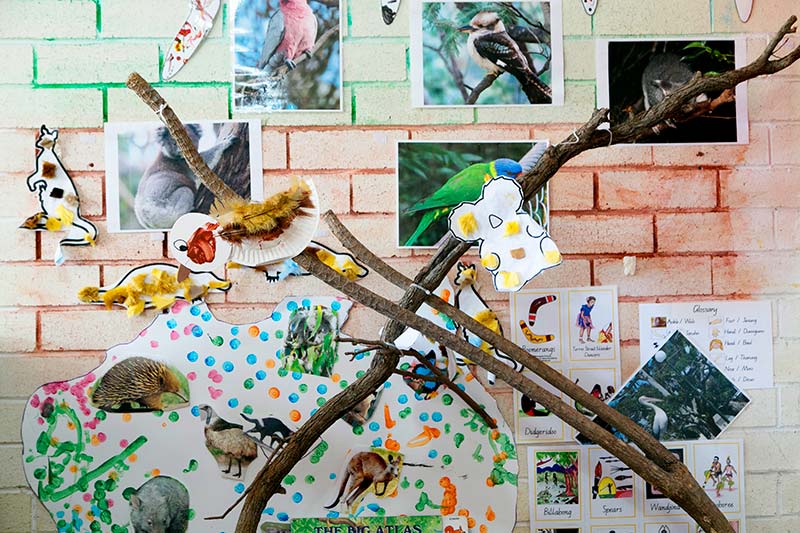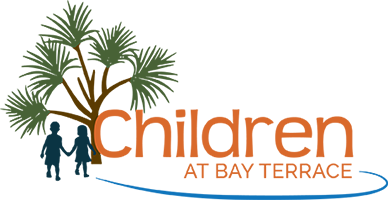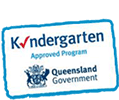
Our Programs
HOW WE IMPLEMENT THE PROGRAM
Educators work in partnership with families and communities to build on knowledge and skill. We utilise a number of contemporary approaches (theories, research and practice) to support each child’s learning.
THE EARLY YEARS LEARNING FRAMEWORK (EYLF) – 15 Months to 3.5 Years
The EYLF describes the principles, practice and outcomes essential to support and enhance young children’s learning from birth to five years of age, which also includes, transition to school. The Framework has a strong emphasis on play-based learning. Research as play is the best vehicle for young children’s learning providing the most appropriate stimulus for brain development. The Framework also recognises the importance of communication and language (including early literacy and numeracy) and social and emotional development.
While the EYLF focuses on children from birth to five years, the Queensland kindergarten learning guideline aims to specifically enrich children’s learning in the Kindergarten Year.
QUEENSLAND KINDERGARTEN LEARNING GUIDELINE (QKLG) – 3.5 to 5 Years
The Queensland kindergarten learning guideline supports kindergarten teachers’ professional practice in a range of contexts across Queensland. The guideline is based on the Early Years Learning Framework for Australia (EYLF) and embraces the inclusive vision that “all children experience learning that is engaging and builds success for life”
The image of the child, parent and teacher actively engaged in learning and teaching is reflected in the principles that guide teachers’ decision making in the kindergarten setting. The principles outlined, promote continuity in children’s learning by integrating the principles and practices identified in the EYLF and build on these to guide Queensland practice in PREP to Year 3 contexts.
The principles that underpin teachers’ practice influence the numerous spontaneous and planned decisions that they make. The analogy of the teacher as weaver creating an integrated decision-making practice
illustrates the dynamic and interconnected nature of decision making. It shows how decision making is embedded within the frame of principles that guide teachers’ practice.
The Kindergarten program is organised and structured in a way to assist the children’s transition to the school environment.

Children at Bay Terrace Daily Routine
Gula Routine
- 6:45am
Centre Opens
Setting up rooms and areas - 6:45 – 12pm
Indoor and outdoor play – Children are involved in a range of teacher- led and child- led learning experiences. Nappy/ Toileting times are incorporated throughout this period as required. - 8:30am
Morning tea is offered to the children, this continues through to 9:30 depending on individual needs. - 9:30am
Art Studio is opened. - 11am
Lunches are being offered. This continues through to 12.00pm depending on individual needs. - 12pm
Production group time – stories, discussions and songs. - 12:30pm
All children are asked to rest quietly on their beds. If rest is not required then quiet activities are provided. - 2:30pm
Nappy change and toileting routines occur as children wake up; Afternoon tea is offered; Indoor and outdoor experiences recommence. - 6pm
Centre closes
Kindergarten Routine
- 6:45am – Arrivals
- 8:30am – Kindergarten session commences
- 9am – Group Time
- 9:30am – Brain Break
- 9:45am – Indoor / Outdoor Programmed Activities
- 10:30am – Tidy Up
- 10:35am – Bathroom
- 10:40am – Morning Tea
- 11am – Indoor / Outdoor Play
- 11:55am – Tidy Up
- 12pm – Group Time
- 12:30pm – Lunch
- 1pm – Rest time / Quiet activities
- 2:30pm – Afternoon Tea
- 3pm – Indoor / Outdoor Play
- 4:50pm – Tidy Up
- 5pm – Upstairs closed. Everyone downstairs.


